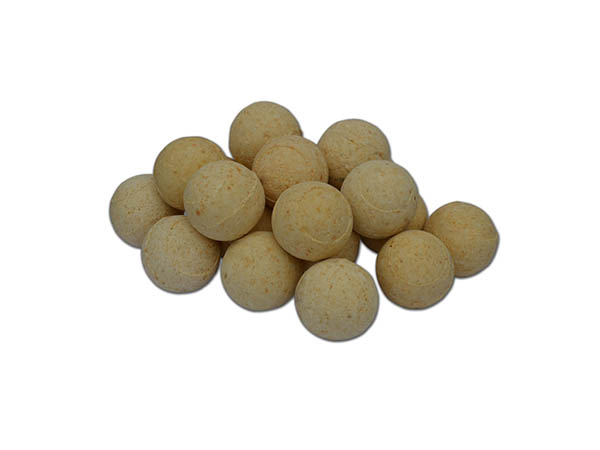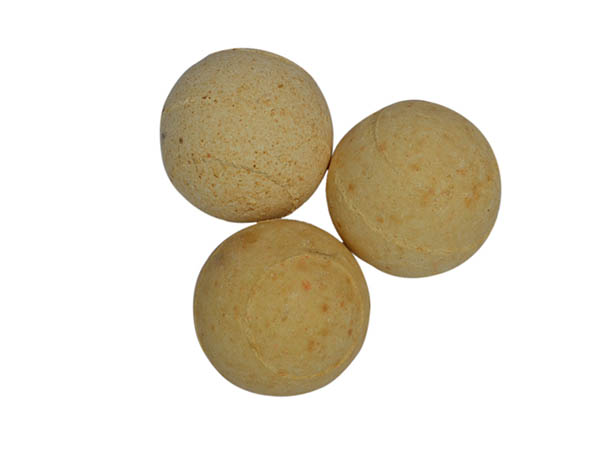Refractory Ball: The Essential Component for High-Temperature Industrial Efficiency and Durability
Introduction
In industries where extreme heat and harsh conditions are the norm, refractory balls have emerged as a critical solution for optimizing thermal efficiency and equipment longevity. These small yet robust spherical units are engineered to withstand temperatures exceeding 1,600°C (2,912°F), making them indispensable in applications such as furnaces, reformers, and chemical reactors. This article delves into the benefits, installation methods, and technical specifications of refractory spheres, demonstrating why they are a cornerstone of modern industrial thermal management.

What is a Refractory Ball?
A refractory ball (also known as a high-temperature ceramic ball or alumina ball) is a spherical, heat-resistant material typically composed of alumina (Al₂O₃), zirconia (ZrO₂), or silicon carbide (SiC). Designed to endure extreme thermal and mechanical stress, these thermal shock-resistant spheres are used to support catalyst beds, distribute gas flow, and protect reactor internals in high-temperature environments. Their porous structure and chemical inertness make them ideal for industries ranging from petrochemicals to metallurgy.
Key Advantages of Refractory Balls
Exceptional Thermal Stability: Withstand temperatures up to 1,800°C (3,272°F) without deformation.
Mechanical Strength: High compressive strength (10–30 MPa) resists cracking under load.
Chemical Resistance: Inert to acids, alkalis, and corrosive gases, ensuring longevity in harsh environments.
Improved Gas Flow: Their spherical shape promotes even gas distribution in reformers and furnaces.
Cost Efficiency: Reduce downtime and maintenance costs by protecting sensitive equipment.

How to Use Alumina ball: Installation Best Practices
Proper installation ensures optimal performance. Follow these guidelines:
1. System Preparation
Clean the reactor or furnace chamber to remove debris. Inspect the support grid for damage.
2. Layering Strategy
Place larger-diameter ceramic support balls (e.g., 50–75 mm) at the base to create a stable foundation. Layer smaller catalyst bed balls (10–25 mm) on top for finer gas distribution.
3. Loading the Balls
Pour the high-temperature alumina balls gently into the reactor to avoid chipping. Use a spreader tool to ensure even distribution.
4. Pressure Testing
Conduct a low-pressure gas flow test to verify uniform distribution and identify voids.
5. Post-Installation Monitoring
Regularly inspect the refractory balls for wear or breakage during maintenance shutdowns.
Technical Specifications
Item | Data | ||||
High Alumina | Mullite | Corundum Mullite | Corundum | ||
Al2O3 | % | 60~65 | 65~75 | 75~85 | 88~90 |
Fe2O3 | % | ≤1.5 | ≤1.2 | ≤1.0 | ≤1.0 |
Bulk Density | g/cm3 | 2.0~2.3 | 2.3~2.5 | 2.5~2.8 | 2.8~3.1 |
Apparent Porosity | % | 20~22 | 20~22 | 18~22 | 18~20 |
Cold Crushing Strength | Mpa | ≥9 | ≥11 | ≥18 | ≥26 |
Stacking Density | kg/m3 | 1400~1500 | 1400~1600 | 1500~1650 | 1650~1800 |
Refractoriness Under Load | ℃ | 1450 | 1530 | 1550 | 1650 |
Applications of Refractory Balls/High-temperature ceramic ball
Petrochemical: Catalyst support in steam methane reformers and hydrocrackers.
Metallurgy: Heat exchange beds in blast furnaces and kilns.
Power Generation: Thermal insulation in coal gasifiers and syngas reactors.
Chemical Processing: Gas distribution in ammonia and methanol synthesis towers.
Unlike traditional ceramic saddles or random packings, refractory spheres offer superior mechanical stability and thermal efficiency. Their spherical geometry minimizes pressure drop while maximizing surface contact, ensuring efficient heat and gas distribution. Additionally, their resistance to thermal cycling reduces replacement frequency, lowering long-term operational.
Inquiry Now
Please leave your e-mail and we will contact you as soon as possible
contact us
Your satisfaction is our top priority. Whether you have questions, need support, or want to share feedback, our dedicated team is ready to assist you every step of the way.